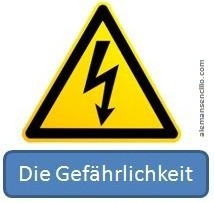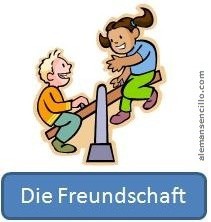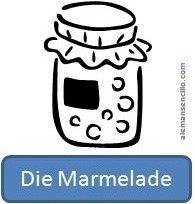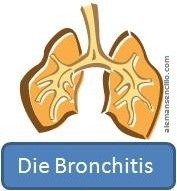Feminine Noun Gender
There are three genders in German: Masculine, feminine and neuter. Usually, the gender of a noun is determined by its ending.
The endings for the most important feminine nouns are:
| Frequency | Ending | ||
|---|---|---|---|
| Very common | -ei | -ung | -in |
| -heit | -keit | -ion | |
| Common | -ie | -schaft | -elle |
| -ik | -ur | -ade | |
| Rare | -age, | -ette | -enz |
| -ere | -ine | -isse | |
| -tät | -itis | -ive | |
| -se | -sis | ||
Keep in mind that there are exceptions.
Unfortunately, there are many other feminine nouns that have different endings than these and whose gender is not easy to identify.
Gender of nouns ending with "-ei"

- How often this ending is seen: Very often
- Plural with "-en"
Examples:
| Example | Meaning |
|---|---|
| die Polizei | police |
| die Abtei | abbey |
| die Konditorei | confectionery |
| die Leckerei | delicacy |
| die Datei | file |
Exceptions:
| Exception | Meaning |
|---|---|
| der Brei | mash |
| der Schrei | scream |
| der Papagei | parrot |
| das Ei | egg |
| das Einerlei | monotony |
| das Blei | lead |
Gender of nouns ending with "-ung"

- How often this ending is seen: Very often
- Plural with "-en"
Examples:
| Example | Meaning |
|---|---|
| die Zeitung | newspaper |
| die Dichtung | poetry |
| die Empfehlung | recommendation |
| die Erfahrung | experience |
Exceptions:
| Exception | Meaning |
|---|---|
| der Schwung | momentum |
| der Sprung | jump |
Gender of nouns ending with "-in"
- How often this ending is seen: Very often
- Plural with "-nen"

NOTE: Nouns ending with "-in" only are feminine if they refer to a woman.
Examples:
| Example | Meaning |
|---|---|
| die Lehrerin | female professor |
| die Darstellerin | actress |
| die Eignerin | female owner |
| die Australierin | Australian woman |
| die Chefin | female boss |
Exceptions: All diminutives ending with "-lein" are neuter: das Madlein (the maiden)
Gender of nouns ending with -heit
- How often this ending is seen: Very often
- Plural with "-en"

Examples:
| Example | Meaning |
|---|---|
| die Freiheit | freedom |
| die Neuheit | novelty |
| die Sicherheit | safety |
| die Trägheit | laziness |
Gender of nouns ending with "-keit"

- How often this ending is seen: Very often
- Plural with "-en"
Examples:
| Example | Meaning |
|---|---|
| die Gefährlichkeit | dangerousness |
| die Höflichkeit | politeness |
| die Langsamkeit | slowness |
| die Häufigkeit | frequency |
Gender of nouns ending with "-ion"

- How often this ending is seen: Very often
- Plural with "-en"
Examples:
| Example | Meaning |
|---|---|
| die Produktion | production |
| die Funktion | function |
| die Kanalisation | drainage |
| die Nation | nation |
Gender of nouns ending with "-ie"
- How often this ending is seen: Very often
- Plural with "-n"
- Many come from Latin or Greek

Examples:
| Example | Meaning |
|---|---|
| die Geografie | geography |
| die Garantie | guarantee |
| die Fantasie | fantasy |
| die Galerie | gallery |
| die Astronomie | astronomy |
Exceptions: der Zombie (zombie), der Yuppie (yuppie), der Unfreie (slave), der Laie (layman)
Gender of nouns ending with -schaft
- How often this ending is seen: Media
- Plural with "-en"

Examples:
| Example | Meaning |
|---|---|
| die Freundschaft | friendship |
| die Gemeinschaft | community |
| die Wirtschaft | economy |
| die Wissenschaft | science |
Words ending with "-elle"
- How often this ending is seen: Media
- Plural with "-n"
- From Italian or French

Examples:
| Example | Meaning |
|---|---|
| die Welle | wave |
| die Zelle | cell |
| die Zitadelle | citadel |
| die Quelle | source |
| die Tabelle | table |
Exceptions: der Junggeselle (single), der Geselle (journeyman)
Gender of nouns ending with "-ik"
- How often this ending is seen: Media
- Plural with "-en"
- Many are from Greek or Latin

Examples:
| Example | Meaning |
|---|---|
| die Fabrik | factory |
| die Musik | music |
| die Technik | technique |
| die Statistik | statistics |
| die Politik | politics |
Exceptions: der Atlantik (Atlantic), der Streik (strike)
Gender of nouns ending with "-ur"
- How often this ending is seen: Media
- Plural with "-en"
- Many of them are from Latin
Examples:
| Example | Meaning |
|---|---|
| die Kultur | culture |
| die Natur | nature |
| die Diktatur | dictatorship |
| die Agentur | agency |
Exceptions:
- Professions: der Chauffeur (driver), der Ingenieur (engineer), der Regisseur (director), etc.
- References to male people: der Amateur (amateur), der Voyeur (voyeur), etc.
- In addition: das Futur (future), das Abitur (exam at end of high school)
Gender of nouns ending with "-ade"
- How often this ending is seen: seldom
- Plural with "-n"

Examples:
| Example | Meaning |
|---|---|
| die Marmelade | marmalade |
| die Limonade | lemonade |
| die Schokolade | chocolate |
| die Schublade | drawer |
Gender of nouns ending with "-age"
- How often this ending is seen: Seldom
- Plural with "-n"

Examples:
| Example | Meaning |
|---|---|
| die Eremitage | hermitage |
| die Etage | floor |
| die Frage | question |
| die Bandage | bandage |
Gender of nouns ending with "-ette"
- How often this ending is seen: Seldom
- Plural with "-n"
- Many are from French

Examples:
| Example | Meaning |
|---|---|
| die Diskette | disk |
| die Etikette | label |
| die Zigarette | cigarette |
| die Marionette | marionette |
| die Kassette | cassette |
Gender of nouns ending with "-enz"
- How often this ending is seen: Seldom
- Plural with "-en"
- Many come from Latin or Greek

Examples:
| Example | Meaning |
|---|---|
| die Konferenz | conference |
| die Frequenz | frequency |
| die Transparenz | transparency |
| die Turbulenz | turbulence |
| die Tendenz | tendency |
Gender of nouns ending with "-ere"
- How often this ending is seen: Seldom
- Plural with "-n"
- Many of them are from Italian or French.

Examples:
| Example | Meaning |
|---|---|
| die Schere | scissors |
| die Portiere | curtain |
| die Niere | kidney |
| die Misere | misery |
Exceptions: der Karabiniere (carbineer), der Gondoliere (gondolier), das Ampere (ampere)
Nouns ending with "-ine"
- How often this ending is seen: Seldom
- Plural with "-n"
- Many come from Latin or Greek

Examples:
| Example | Meaning |
|---|---|
| die Violine | violin |
| die Vakzine | vaccination |
| die Maschine | machine |
| die Ruine | ruin |
| die Leine | rope |
Exceptions: der Beduine (bedouin)
Nouns ending with "-isse"
- How often this ending is seen: Seldom
- Plural with "-n"
- Many of them are from Latin or Greek

Examples:
| Example | Meaning |
|---|---|
| die Narzisse | narcissus |
| die Prämisse | premise |
| die Kulisse | frame |
| die Abzisse | abscissa |
Gender of nouns ending with "-tät"
- How often this ending is seen: Seldom
- Plural with "-en"
- Many come from Latin or Greek

Examples:
| Example | Meaning |
|---|---|
| die Universität | university |
| die Pubertät | puberty |
| die Naivität | naivety |
| die Parität | parity |
| die Priorität | priority |
Gender of nouns ending with "-itis"
- How often this ending is seen: Seldom
- Plural "-itis ➜ -iden "
- They come from Greek and are diseases (-itis means inflammation)

Examples:
| Example | Meaning |
|---|---|
| die Bronchitis | bronchitis |
| die Cellulitis | cellulitis |
| die Rachitis | rickets |
| die Hepatitis | hepatitis |
Nouns ending with -ive
- How often this ending is seen: Seldom
- Plural with "-n"

Examples:
| Example | Meaning |
|---|---|
| die Lokomotive | locomotive |
| die Olive | olive |
| die Perspektive | perspective |
| die Alternative | alternative |
Gender of nouns ending with "-se"
- How often this ending is seen: Seldom
- Plural with "-n"

Examples:
| Example | Meaning |
|---|---|
| die Rose | rose |
| die Zuckerdose | sugar bowl |
| die Osmose | osmosis |
| die Badehose | swimming trunks |
Gender of nouns ending with "-sis"
- How often this ending is seen: Seldom
- Plural "-sis ➜ -sen "
Examples:
| Example | Meaning |
|---|---|
| die Basis | basis |
| die Dosis | dose |
| die Genesis | genesis |
Exception: das Chassis (chassis)
We suggest you practice what you've learned by trying out your knowledge in a simple exercise about gender
Related topics: Gender of Masculine Nouns, Gender of Neuter Nouns
Next Lessons:
home > : Pronouns | Prepositions | Nouns | Plurals | Diminutives | Verbs | Conjugation | Passive | Irregular verbs | Modal Verbs | Separable verbs | Reflexive verbs | Reciprocal verbs | Impersonal verbs | Conjunctions | Articles | Adverbs | Konjunktionaladverbien | Adjective | Comparative and superlative | Word order in German | Negation and Affirmation | Interrogation | Indirect question | Subordinates | relative clauses | Conditional clauses | Comma
Suggestions to Help You | Difficulties with learning German | Greetings